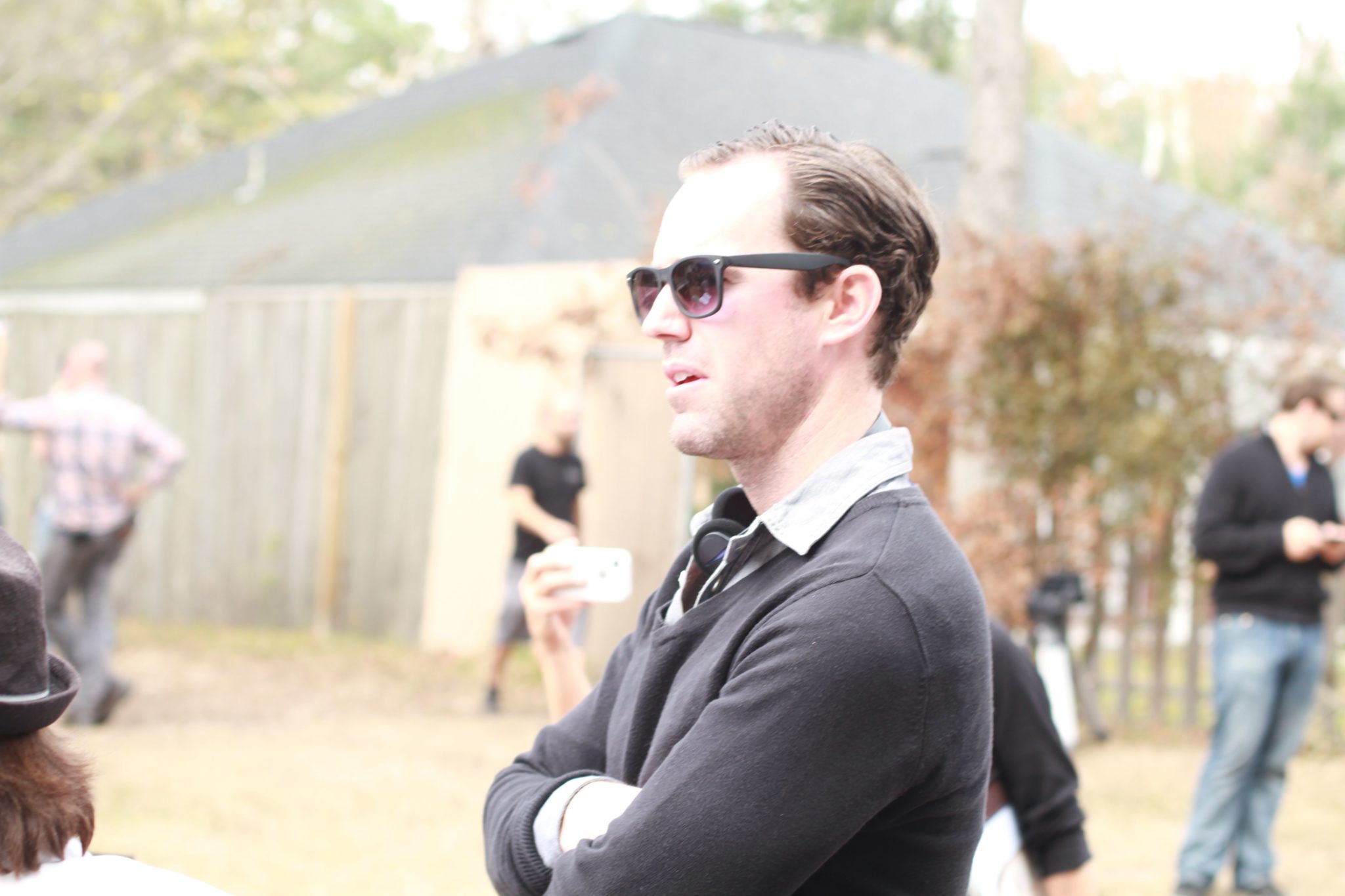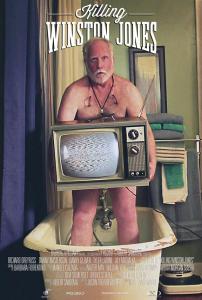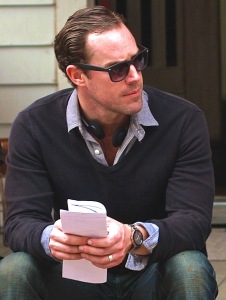ScreenCraft Interview with Justin Trevor Winters

1. How did you get your start as a screenwriter?
I attended film school at the University of California at Santa Barbara where I studied all aspects of filmmaking, including screenwriting. After graduating, I moved to Los Angeles with the primary goal of becoming a screenwriter. Upon finishing my first feature-length screenplay, I felt I achieved that goal.. well, creatively speaking, at least.
I soon realized, however, that writing a screenplay was only half the battle and if I wanted to be a working writer, I needed to learn the business side of the industry as well. Shortly after coming to this realization, I was lucky enough to be hired at Innovative Artists Agency and would later join Creative Artists Agency. It was at these agencies that I worked alongside agents, managers, lawyers, investors, producers, and studio execs. I collaborated with actors, directors, screenwriters, and authors. I read scripts, wrote coverage, and recommended potential clients. I gained a vast understanding of the innerworkings of the screenwriting trade and the industry as a whole. And by “industry as a whole,” I mean I also made oatmeal with exactly 3 banana slices, a dash of raw organic agave, and just the right amount of flax seed… I ducked out of the way of flying staplers (*Disclaimer: I never said they were thrown at me for the record… I’ll let you draw your own conclusion).
I worked 16-hour days and weekends. I picked up laundry and babysat latch-key kids… I worked in and survived the physically and emotionally draining trenches with countless other assistants and made invaluable connections and relationships that I still utilize today. That being said, I cannot emphasize enough the importance of working within the industry, whether that be at an agency, production company, studio, or the like. Wherever you can get your foot in the door, you get your foot in that door. It was also my time at Innovative and CAA where I learned one of the most valuable lessons… As a writer, you should never sacrifice the integrity of the story you want to tell, but you sure as hell better be conscious of the fact that at the end of the day this is a business. And in my case I believe it was this knowledge that helped me get my very first script optioned and produced.
2. How did your first feature film, Killing Winston Jones, come together?
While I was working at Innovative Artists we represented the actor/director Joel David Moore. At that time he was riding the recent box-office success of his latest acting endeavor, Dodgeball, and the agency was courting him, meaning, he was in the office a lot discussing various projects. Being the “green” assistant that I was, I decided to approach Joel and tell him I was not only writing a script, but that I had the perfect part for him. Cringeworthy, I know, however Joel, being the amazingly kindhearted individual that he is, not only indulged me, but encouraged me. He even told me to send him a draft when it was complete. Working the long and strenuous hours at the agency didn’t leave me much time to write, so once I burned out… I mean… once I felt I had paid my dues and made my connections, I left to pursue screenwriting full-time.
After months and months of writing and rewriting, I re-approached Joel. It took him what felt like an eternity to read the script (accomplished actors have stacks and stacks of scripts sent to them, so be patient). Once he read it, he immediately attached himself to produce, direct, and star. That was my first success! Shortly thereafter we made the film, padded our bank accounts with millions of dollars, and won a plethora of Academy Awards… wait a second, that’s not how it happened at all. The truth is, he attached himself in 2010. We found and lost financing dozens of times. We attached, lost, reattached, and lost A-List actors again and again.
The entire project fell apart more times than I care to remember. I’d fly over my own peaks of megalomania one day… only to dig the deepest trench in my valley of self-loathing the next. It wasn’t until I had almost given up, 3 years after Joel had come aboard, that we finally put the film together and called “action.” The amount of time it took from the moment I wrote “fade in,” to the moment it will play in theaters (god willing), will be 7 years. So if you’re looking for an easier option, or a fast track: don’t. It doesn’t exist. You’ll have to work 1,000 times harder than you ever imagined. You’ll deal with more failure, heartbreak, and rejection in a single day than most people will experience in an entire lifetime. And that’s filmmaking. That’s normal. And that is, if you’re lucky, what will happen to you and your screenplay, so that one day you will be able see it on the big screen.
3. What projects are you working on, and how are you going about getting them made?
I have two feature dark comedies, three one-hour dramas, a half-hour single-camera comedy, a comedy panel quiz show, a feature adaptation of a short story, a biopic, a web-series, and an animated short. They are all in different phases of development. Never put all of your eggs in one basket… You’ll want to kill yourself with the amount of rejection you receive over and over and over and over and over again. If you have a few projects going, I guarantee there will always be at least one that will yield some interest… and that interest should be just enough to keep your terribly deflated ego afloat.
And to answer the second part of this question, I am “going about getting my projects made” by pitching them to anyone who will listen and utilizing the connections I have made over the years. As I mentioned before, find a job working in the industry. You will immediately become more competitive and your connections and opportunity for exposure will grow exponentially. And on that note, here is the logline for my latest project THE BOOK OF MATHEWS 1SC (see what I did there… more exposure for my material… Thanks for the shameless plug ScreenCraft)! And I’m not worried about anyone stealing my concept and you shouldn’t be either. *See why I am not worried about anyone stealing my concept below.
THE BOOK OF MATHEWS 1SC (One-Hour Drama)
Dr. Meredith Mathews, PhD, a devoted Christian and scholar of religious studies and archaeology, is on sabbatical in Jerusalem when she exhumes an ancient tomb believed to bare the bones of Jesus Christ. Upon releasing her findings and therefore disproving the very foundation of Christianity, she becomes the target of several radical religious groups and is left in a coma after an assassination attempt. While in a coma for nearly a year, she becomes pregnant, leaving many Christians to believe she is carrying the Son of God and that the second coming of Christ is upon us.
4. What advice would you give to aspiring screenwriters who are trying to get their work into the right hands?
First and foremost, you can’t get your work into the “right hands” until it’s ready… and chances are your script isn’t anywhere near ready. Start by pitching your concept to anyone who will listen… give the script to anyone who will read it regardless of if they are in the industry or not… and always be open to constructive criticism. Also, never be afraid that someone is going to steal your idea.
Don’t get me wrong, ideas are stolen, but if you’re confident in your ability as a writer, you know no one else will write the script like you will. Do however, register the script with the WGA and have it copyrighted and you’ll be more than covered. Back to getting your script into the “right hands.” I have a tier of people I send my projects to and it breaks down as follows:
1st Tier: Family & Friends outside of the industry.
2nd Tier: Fellow Writers, Actors and Friends inside of the industry.
3rd Tier: Agents & Managers (if you have them).
After each tier, I read through the notes I’ve received and revise my material accordingly. Writing is rewriting. Live it, and learn to love it. Once I feel the script is absolutely bulletproof because it’s been through the ringer, I take it out to the:
4th Tier… The “right hands:” The Producers, Investors, and Development/Creative Execs.
Never send out a script until you are absolutely confident it‘s bulletproof. The guys with the “right hands” will only read the script once, and it’s much easier for them to pass. Don’t give them a reason to. If you don’t know any managers, agents, producers, or studio execs… get out and meet some. There are tons of screenings, Q&A panels, social events, and workshops out there. Pack your bags and move to LA, NYC, or any major city that has a film and TV industry… shit move to Atlanta.
Everyone’s moving to Atlanta, the tax incentives are crazy right now. If you can’t move, or just plain don’t want to, try entering your screenplay into competitions (ScreenCraft plug)… and win some. Enroll in screenwriting classes (online if you have to… I highly recommend the UCLA Extension Writer’s Program). You’re already a step ahead of most aspiring writers if you educate yourself, and chances are your instructor will have credits and connections. If your writing is stellar, it will find its way into the “right hands.” As I mentioned, screenwriting is a business: 50% creative and 50% salesmanship. Put your producer hat on and get your project out there.
5. What goes into crafting a good TV pilot script vs. a good feature film script?
Storytelling is storytelling, however this is a BIG question that deserves a BIG answer. I teach screenwriting at the UCLA Extension Writer’s Program, and it takes weeks, months, sometimes years to explain how to craft a good story. So I guess the shortest answer is… come take my class and I’ll explain it further. Thank you again for the shameless plug, ScreenCraft.
The longer short answer is, TV pilots are much more condensed time-wise than features; therefore you have less pages to develop the story. Sure, you may have multiple episodes or even seasons in TV, but we’re talking about the pilot, and only the pilot. Therefore you have to hook the reader immediately and make sure that A LOT of shit happens non-stop. Pack it in. Don’t hold anything back. If you have outlined the first season, and you have a bible, and the “craziest, biggest thing” happens in the 4th episode… give it to me in the pilot. That’s right; give me all of your best material in the pilot. If someone buys it, you can always put your “craziest, biggest thing” back in the 4th episode… if you’re lucky enough to be kept on as a writer…
The even longer short answer is, I approach all of my writing assignments, both film and TV, with equal fervor and discipline. As I mentioned earlier, I pitch the story/concept to anyone who will listen. It allows me to find out what’s working and what isn’t… whether people absolutely love it or absolutely loathe it. Once I have what feels like a solid idea, I outline, and outline, and outline some more! I develop the shit out of my characters and nail down their arcs; where they start and finish. I board all of the beats and breakdown all of the scenes.
I make sure I have conflict in every one of those scenes and that there are emotional shifts within my characters throughout. If there isn’t conflict or emotional changes, I revise it or cut it. Once I have a solid outline and board, I write and write and write some more. Then rewrite and rewrite and rewrite some more. Then I send it out for notes and constructive criticism. Once I evaluate the notes I revise, and revise, and revise some more. I rinse and repeat until the script is bulletproof and ready to be sent out to the “right hands.” Once it’s out, I do my best to cramp Papa Hemmingway’s style, order enough daiquiris to kill a small army, and wait for the phone call where someone says “yes”… and then millions start pouring in and I go buy that island I always dreamt about and then… I wake up at the bar realizing its closing time and I don’t have enough money to pay my daiquiri tab.
And on that note, you’re about to finish reading this overly preachy rant by some writer you’ve never heard of. Judge me, I deserve it. I’d judge me. Now that you’re done, stop stalling. Stop making excuses not to write today. Get back to it. It’s a long road but somebodies gotta do it.
Tags
Get Our Screenwriting Newsletter!
Get weekly writing inspiration delivered to your inbox - including industry news, popular articles, and more!































